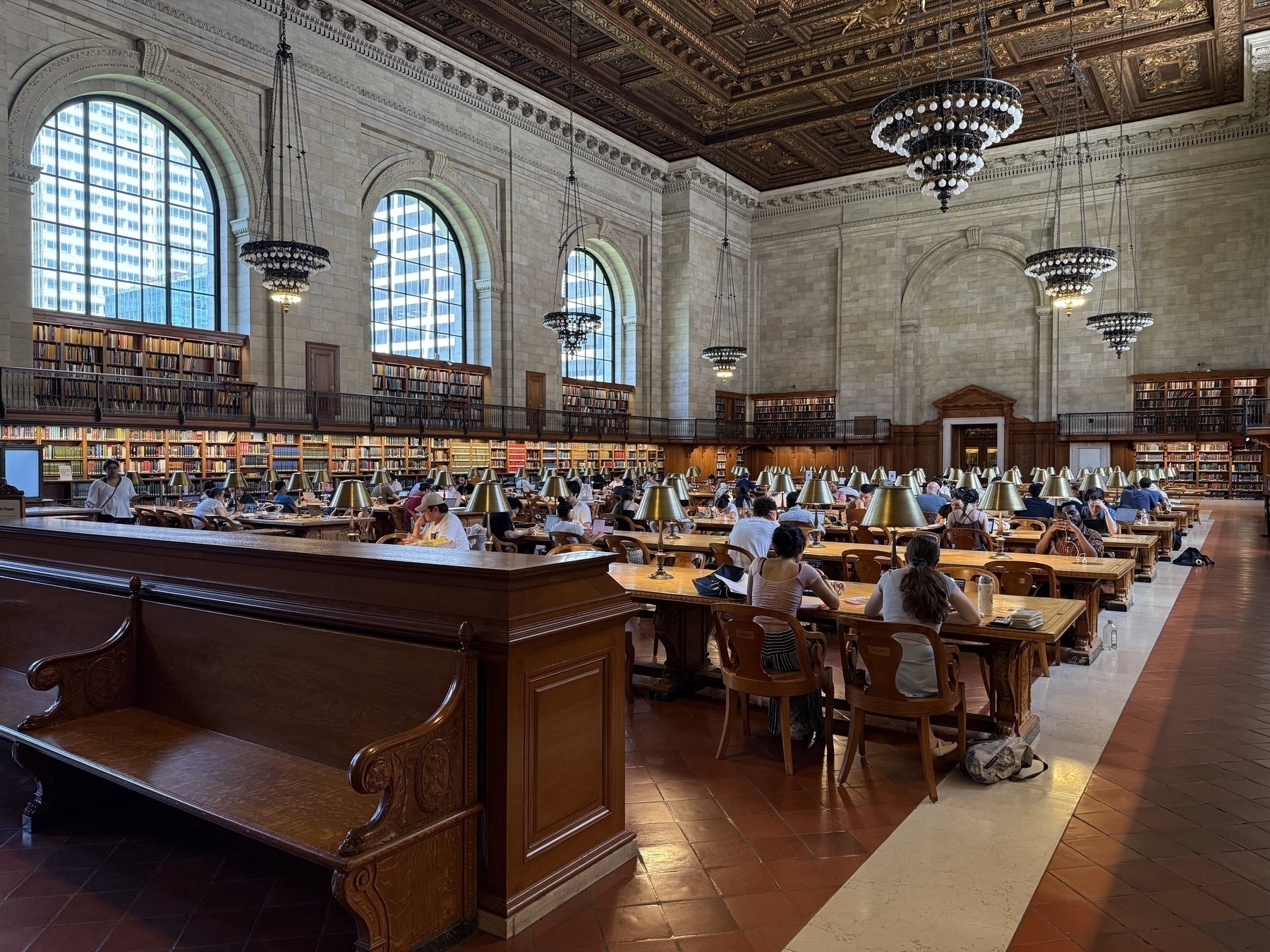If you only wished to be happy, this could be easily accomplished; but we wish to be happier than other people, and this is always difficult, for we believe others to be happier than they are.
— Montesquieu
If you only wished to be happy, this could be easily accomplished; but we wish to be happier than other people, and this is always difficult, for we believe others to be happier than they are.
— Montesquieu
We emerge from the air-conditioned lobby of our apartment building on this warm August morning, pulled along by two anxious dogs. The humidity slips over and around us like a sweaty embrace. The faint scent of garbage, flowering shrubs, and dog urine hangs in the still air. We look both ways for other dogs before descending the steps, alert to the bedlam an encounter here at the edge of their estate would create.
I look forward to these Sunday morning walks in Manhattan. The city empties out over summer weekends. Fewer people out walking, even fewer cars. An hour’s walk along these streets and avenues is therapeutic for the body and soul.


Finished reading: On Tyranny by Timothy Snyder 💙📚
A concise summary of the tactics used by totalitarian governments to suppress freedom and democracy. Clear examples from twentieth-century despots support each of the twenty lessons. ★★★★☆

Finished reading: The Rise and Fall of the Third Reich: A History of Nazi Germany by William L. Shirer 💙📚
I’m glad I read this hefty tome. I can put current events and government decisions into the context of what happened in Nazi Germany. I know better what to look for. ★★★★☆

Finished reading: Maximum Bob by Elmore Leonard 💙📚
A recent New Yorker article by Anthony Lane prompted me to read this one, my first Elmore Leonard book. I enjoyed the pacing and dialogue and colorful cast of characters, all set in languid south Florida.
★★★★☆
America has been a terrific country for investors. All they have needed to do is sit quietly, listening to no one.
— Warren Buffett, 2023 Berkshire Hathaway Shareholder Letter
Take gratefully any pleasures the world provides, but don’t curse God when they fail. Nobody in the universe ever promised you anything. Most things break, including hearts. The lessons of a life amount not to wisdom but to scar tissue and callus.
Wallace Stegner, The Spectator Bird
Good news for Kobo readers or those looking to escape the Amazon ecosystem: Instapaper Read-It-Later comes to Kobo e-Readers later this summer.
David Barber returns to Evernote after a dalliance with Bear:
When I’m using Evernote, it becomes my central repository for receipts, travel plans, info that came to me via email, desk scraps, web-clips, and quick thoughts. I don’t even have to think about it.
I used Evernote from 2008 to 2016, but the data lock-in, ads, feature bloat, and outrageous price hikes eventually pushed me to DevonThink. Since its acquisition by Bending Spoons, it has improved significantly. People like David are choosing it over excellent alternatives. This is an amazing and unexpected turnaround.
@amylouise on Madame Bovary:
I hope that when you pay attention to the world, see every flower on every oat-stalk and every bumbling country doctor, you find that you can look them into loveliness. I hope that even being bound to a dull community of foolish people could bring unexpected graces. I hope that reality has a richer romance than fantasy.
I loved every word of this review. 💙📚

Finished reading: The Great Gatsby by F. Scott Fitzgerald 💙📚
See my review for notes and favorite highlights. Still and always ★★★★★.
Irreverent take on why the internet hates ‘performative reading’:
We’re told by college professors that students can’t read entire books any more, that gen Z parents don’t like reading to their kids, that smartphones ruined our ability to focus on anything longer than 30 seconds, that AI slop will take over publishing. Don’t be a chump. Read everywhere, and read often.
I walk through Central Park every day and see lots of young people reading books. I’m always peeking at covers. I don’t think this is performative. The pure joy of reading seems very much alive and well.
The Rose Reading Room at the New York Public Library. It’s just a few subway stops from our apartment, so I’m able to spend time here often. What an inspiring place for a reader or writer!

Living in Manhattan with dogs near Central Park has proved to be a surprisingly pleasant experience, allowing both the pets and their owner to thrive despite initial concerns.
After an eight-week break, a return to Micro.blog reaffirmed its value and the supportive community it fosters, contrasting sharply with the overwhelming nature of other social media platforms.

Finished reading: Brightness Falls by Jay McInerney 💙📚
McInerney’s great American novel: flawed characters grappling with timeless themes, set in what is arguably the greatest city on earth. I loved it. ★★★★★
See my full review for notes and favorite highlights.
Finished: Nightmares and Dreamscapes by Stephen King 💙📚
★★★★☆ Not King’s best short story collection. I think that award goes to You Like It Darker from last year. But any collection of stories by this generation’s master storyteller is still pretty great.
I passed the four-year mark of quitting alcohol today. Where I once struggled with days or weeks, now the years are piling up. As I shared on my third anniversary, the key for me was ruling out any thoughts of future moderation. It took many failed attempts before I accepted this simple truth.
We are walking through Central Park on a beautiful May morning, two lovebirds, married these many years. It’s our third day in Manhattan, and it feels as though the city has opened its arms wide and hugged us. Everywhere we look is green and lush. We pass a bakery nestled deep inside the park and decide to return tomorrow for a coffee and treats. We emerge from the meadows and winding paths to the thrum and bustle of the Upper West Side.